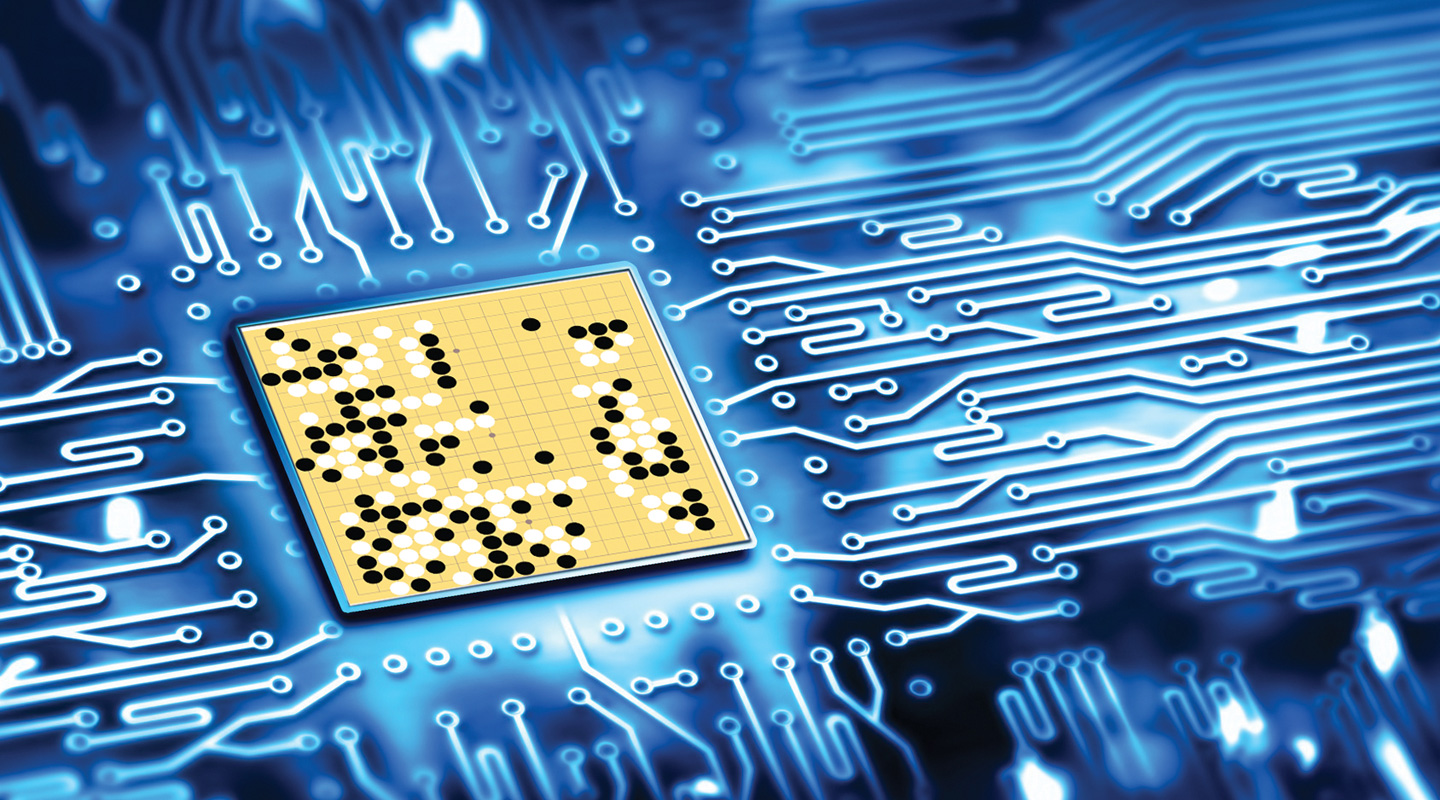Dear readers, With the launch of e-newsletter CUHK in Focus, CUHKUPDates has retired and this site will no longer be updated. To stay abreast of the University’s latest news, please go to https://focus.cuhk.edu.hk. Thank you.
How Far Can AlphaGo Go?

AlphaGo has beaten human chess champion after human chess champion, with the world’s number 1 Go player Ke Jie being the latest towel-thrower. The question asked by Alan Turing (1912–1954) 67 years ago: ‘Can machines think?’ seems to have been answered in the affirmative. Not only can a machine think like human beings, it can out-think human beings.
Emma Brunskill, computer science professor at Stanford University, saw AlphaGo achieved its board game success by these means:
It uses deep neural networks to make decisions directly based on the board configuration; it uses extensive prior data about human-vs-human games to bootstrap its learning; and it uses reinforcement learning to improve itself based on simulated game play.*
Will computers go from chess champion to chief strategist and eventually god, which is already the raison d’être of many a sci-fi fiction or drama? Will it go all the way to order and determine our lives and become the horse rather than the cart? Would drivers be driven out by driverless cars? Would men and women meet after the chance of a successful relationship has been first evaluated by a computer?
With increasing sophistication in algorithms and metrics that turn education, profession, personal interests, values, life goals, etc. into data, online matchmaking services are making bolder promises of successful matches. To give a few examples, Chemistry.com identifies matches based on brain and body chemistry that is supposedly associated with temperament and personality. ScientificMatch.com and GenePartner.com find perfect couples based on differences in immune systems.
Then there is the issue of autonomizing the battlefield, leaving the guns and human lives to the sole discretion of the supercomputer. Autonomous weapons are being developed and refined, the most well-known being unmanned aerial vehicles (UAVs), aka drones. Computer warfare can mean total warfare, and bring Armageddon to our doorstep sooner than we thought.
But Brunskill did point out two saving graces. First, there is no real-world cost to losing a chess game other than losing a chess game. In real life, however, one’s decision, such as a surgeon’s or a pilot’s, may have immediate and dire consequences that one cannot depend on randomness or trial-and-error in the learning process.
Second, Brunskill continued, Go is a fixed game where there are definite rules and possible and impossible moves. AlphaGo is not allowed to invent a new rule or break the mould, so to speak. This is vitally different from the human capacity to innovate new ideas or solutions.
In the deterministic world of games, humans may reluctantly play the underdog. But only in the deterministic world of games.
T.C
* Emma Brunskill. ‘AlphaGo’s Artificial Intelligence Can Only Be Extrapolated So Far’, New York Times, 9 March 2016.
This article was originally published in No. 500, Newsletter in Jun 2017.